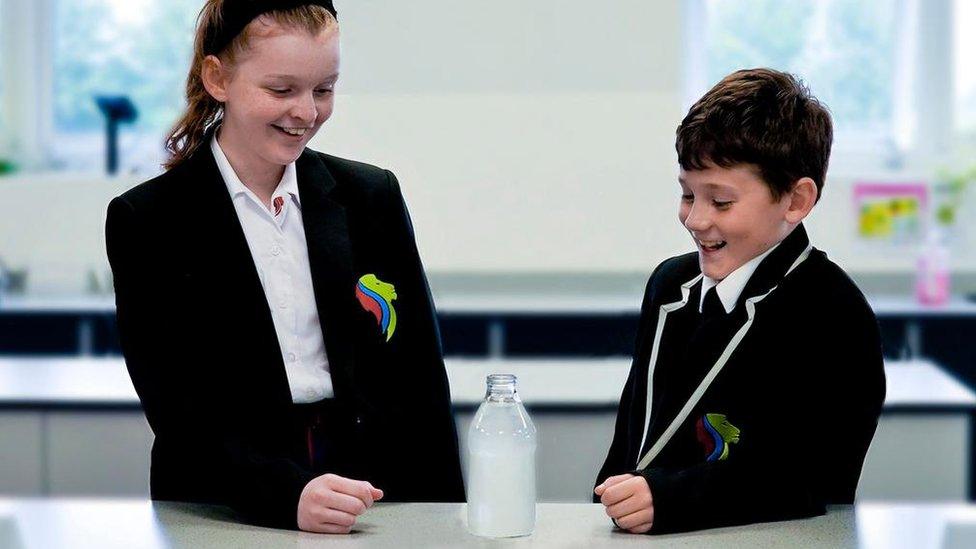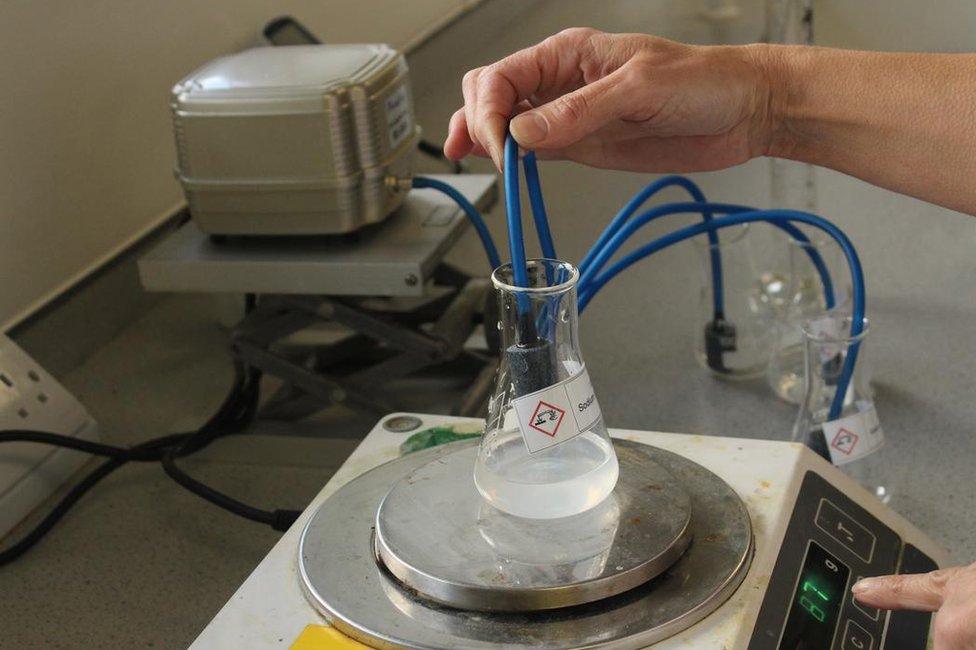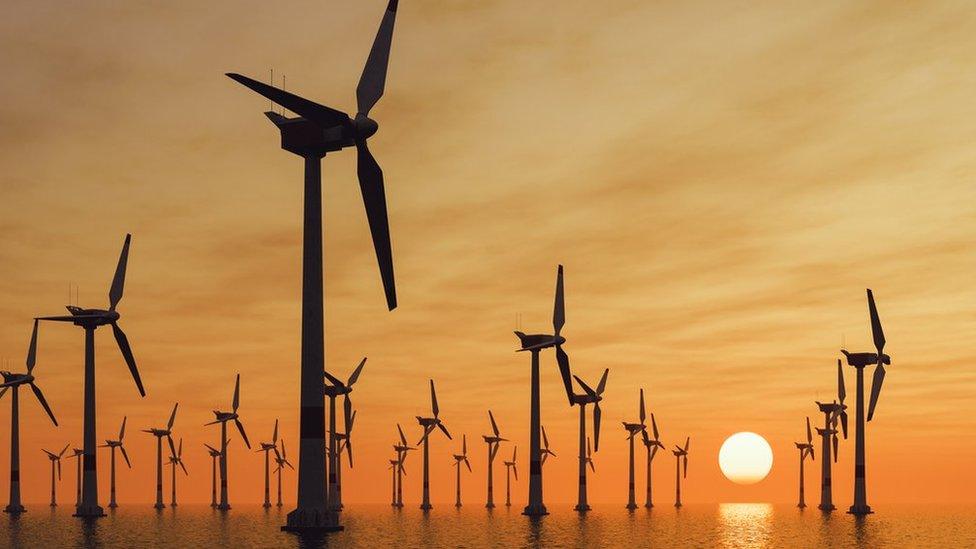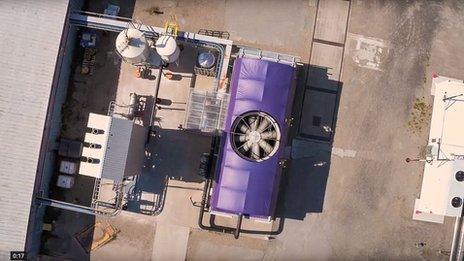COP26: Stamford school experiment with solar-powered carbon capture
- Published

John Hickman, the school's head of science, said he was "thrilled" for the pupils
Science students who captured carbon dioxide in a bottle are hoping their experiment could play a starring role at the COP26 climate conference.
Pupils at Stamford Welland Academy in Lincolnshire have invited COP26 president Alok Sharma to receive the bottle.
They hope it could sit on his table throughout the Glasgow event.
The experiment, using everyday objects, was engineered to show one way that CO2 can be recaptured from the air.
Student Ruby, 15, said: "Our generation is often accused of jumping on the save-the-planet bandwagon whilst not having realistic solutions to the problem.
"But we probably know more science than most of our parents."
COP26, which starts on 31 October, is a UN summit which aims to get guarantees from countries to cut emissions and help limit climate change.
The experiment, steered by scientists from the SETI Institute in the United States, showed pupils one of the ways that carbon dioxide could be recaptured from the air.
Using drain cleaner among other ingredients, the project experimented with differing concentrations of sodium hydroxide solutions to absorb the gas.
The carbon capture process was powered by solar pumps.
The school said it was thought to be "the first attempt to drive the process by solar power".
Prof Peter Styring, a leading researcher in carbon capture and a delegate at COP26, said: "Whilst carbon capture technology alone is not going to save us from the effects of climate change, it must be in the mix for reaching our carbon-zero target in the decades ahead."

COP26 is to be held in Glasgow from 31 October to 12 November
Scientists believe to meaningfully impact climate change, five to 10 billion tonnes of CO2 annually would need to taken out of the atmosphere over the next few decades.
The school's head of science, John Hickman, said he was "thrilled" the pupils embraced the experiment.

Follow BBC East Yorkshire and Lincolnshire on Facebook, external, Twitter, external, and Instagram, external. Send your story ideas to yorkslincs.news@bbc.co.uk, external.
- Published3 May 2024

- Published24 June 2021
